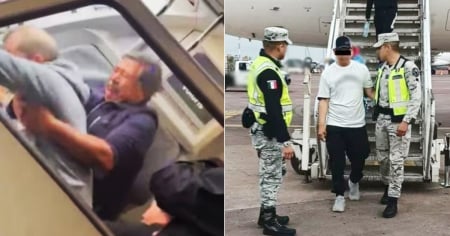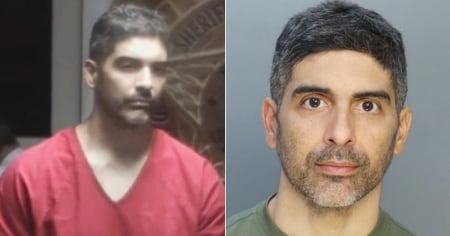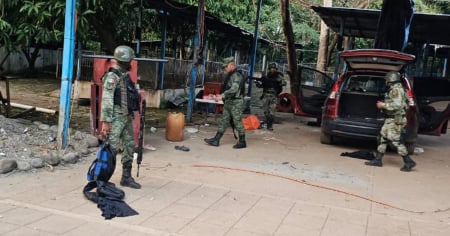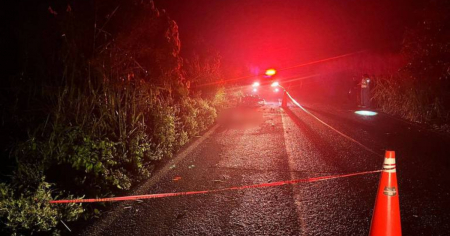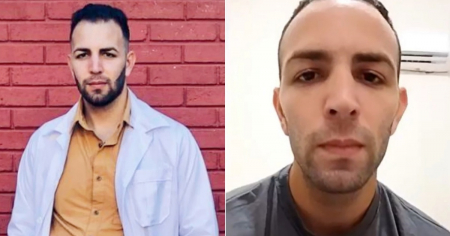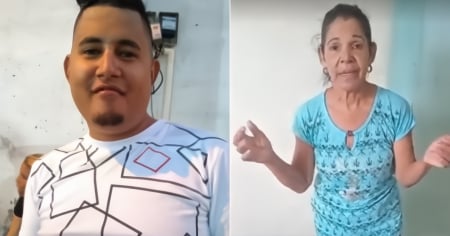
Related videos:
For more than 15 days of horror, during which she thought she would not survive to tell her story, a young Cuban woman named Dayanis endured a nightmare at the hands of a criminal gang that kidnapped her in Tapachula, Mexico, a country she had entered in hopes of reaching the United States to achieve the "American dream."
Dayanis's story is another one of the tragic tales of Cuban immigrants who fall victim to kidnapping in Mexican territory while undertaking the journey to reach the U.S., amid the largest wave of Cuban migration in history.
Fortunately, the young woman's family and friends were able to meet her captors' demands and paid the $10,000 they requested for her release.
After being held captive for more than two weeks, the kidnappers threw her into the bushes outside the city, blindfolded. Thus, the torment experienced by the young Cuban came to an end, which she recounted in an exclusive interview with Diario del Sur.
The testimony of Dayanis, whose last name was not disclosed - and perhaps her real name isn't even that - to protect her safety, was published on Monday by the local newspaper. It once again reveals the risks that immigrants, including Cubans, face on their journey to the U.S.
To that end, the Cuban woman sold all her valuable belongings on the island: her house, furniture, equipment, and clothing. This allowed her to gather the money needed to buy a plane ticket and embark on her journey, which began in Guyana, then continued to Nicaragua with a supposed travel agency that transported her by land, and finally, she arrived with "coyotes" in Tecún Umán, Guatemala.
In this Central American country, bordering Mexico, she was taken along with dozens of immigrants from other nationalities to one of the so-called "secure houses," where "they were kept like animals," as they "slept on dirty mats, received little food, and the treatment was no longer as kind as at the beginning," according to the Mexican newspaper.
"While those who were watching them displayed firearms at their waist, so complaining was something to think twice about," the Cuban woman told Diario del Sur.
One early morning, the coyotes ordered them to get onto rafts made from tractor tires and planks to cross the Suchiate River, and once in Mexico, they were taken to a shelter. There, they realized they were in the hands of organized crime.
They were given a “temporary black tattoo or seal in the shape of an eagle” on their right arm, and at some point, their cell phones were taken away, and they were loaded into vehicles with tinted windows and taken to the Lagartero community.
In that place, they were taken down to be loaded into some local taxis, but not before being forced to state the address they were heading to.
This is how Dayanis arrived in Tapachula, facilitated by a coyote, “a member of a criminal cell.” After being released, the young woman rented a house in the Montenegro neighborhood, in the northeast part of the city.
"I honestly let my guard down, thinking I would be in a safe place. The first thing I did was look for a job; I am a professional chef with many years of experience. I faced discrimination for being a migrant. I had to find a way to support myself to pay for rent and food. In a casual dining kitchen, I was paid 100 pesos a day plus two meals. It was a very quiet place, and I was there for at least a month, and everything was normal," she stated to Diario del Sur.
The kidnapping
A few days later, she heard the alert about a truck with tinted windows and armed individuals circulating through Tapachula. She took precautions, but none would be enough.
I remember it perfectly; it was around 1:00 AM. I only heard them break down the door. Armed men in masks entered, went straight to my room, and forced me to leave.
"I remember it perfectly; it was around 1:00 AM. I only heard the door being kicked in, and then men with hoods and long guns entered. They went straight to my room and took me away by force," he recalled.
“At that moment, I was only in my pajamas. They told me to be quiet and lifted me into the vehicle. They blindfolded me and ordered me to remain silent. I could barely hear anything until we arrived, along with other captives, at a ranch where our captors referred to as ‘The Rooster’s Den,’” he recounted.
They were bound, hands and feet, lying next to each other, and their captors ordered them to be silent. The next day, Dayanis was given a cell phone to call her family and ask for the ransom money. She managed to remember her cousin's number.
I called him, pleading for him to please come up with the $10,000 they were asking for, or I wouldn't have any reasons left. They threatened that if there was any delay, they would cut off one of my hands, then my leg, and finally, they would take my life by mutilating me.
"I called him begging that he please come up with the $10,000 they were asking for, or I would have no reason to live. They threatened that if they took too long, they would cut off one of my hands, then my leg, and finally they would end my life by mutilating me," he revealed.
To prevent her from being killed, Dayanis's family reached out to friends in various countries and successfully raised the demanded amount. According to her testimony, the kidnappers asked for more money, "but they explained in different ways that they didn't have it and that they had great faith that God could intervene by touching their hearts."
“For more than 15 days, I was kidnapped, without knowing where I was or what day it was. They shouted at us that we would die if our families didn’t pay the ransom. The food they gave us was already spoiled. At least I felt the presence of about 60 people in a very small place that was surrounded by barbed wire,” she recalled.
After her family paid, one of the captors told her to "calm down," as she was going to be taken out of there.
"They threw me out like a dog; I walked several kilometers until a woman found me. She took me in at her home and lent me her cellphone to call my loved ones, who tried to find a way to keep themselves safe in Tapachula," she stated.
"I was traumatized; I didn't want to report them because what's the point if the authorities are colluding? Fortunately, I am alive, while many of my fellow countrymen die because they lack the financial resources to pay those ransoms. We risk everything just to have a better life in the United States," confessed the young Cuban who, by chance, emerged alive from this nightmare.
Frequently Asked Questions about the Kidnapping of Cuban Migrants in Mexico
What happened to the young Cuban girl Dayanis in Tapachula?
Dayanis, a young Cuban woman, was kidnapped in Tapachula, Mexico, by a criminal gang while trying to reach the United States. She was held for more than 15 days until her family could pay the ransom demanded by the kidnappers. After her release, she was abandoned in some bushes outside the city.
What are the risks faced by Cuban migrants in Mexico?
Cuban migrants in Mexico face significant risks of kidnapping and extortion from criminal groups. These dangers have increased in the context of the Cuban migration crisis, with many migrants being kidnapped and subjected to inhumane conditions while their families are demanded to pay for their release.
How do kidnappings affect the families of Cuban migrants?
Kidnappings severely impact the families of Cuban migrants, who are forced to raise large sums of money under threats of extreme violence against their loved ones. Families turn to friends and acquaintances to gather the necessary funds, resulting in significant emotional and financial stress.
What measures are Mexican authorities taking in response to the kidnapping of migrants?
Mexican authorities have conducted operations to rescue kidnapped migrants and have arrested some of those involved in these crimes. However, the complicity of certain officials and corruption make it difficult to eradicate these practices, which perpetuates the insecurity faced by migrants in transit.
Filed under:

